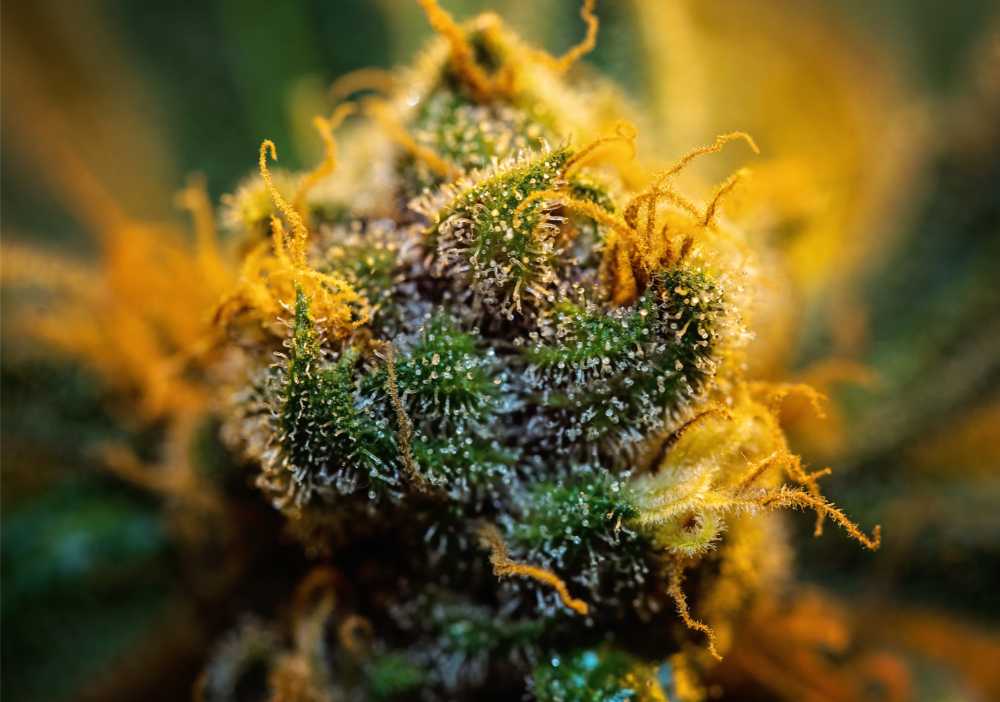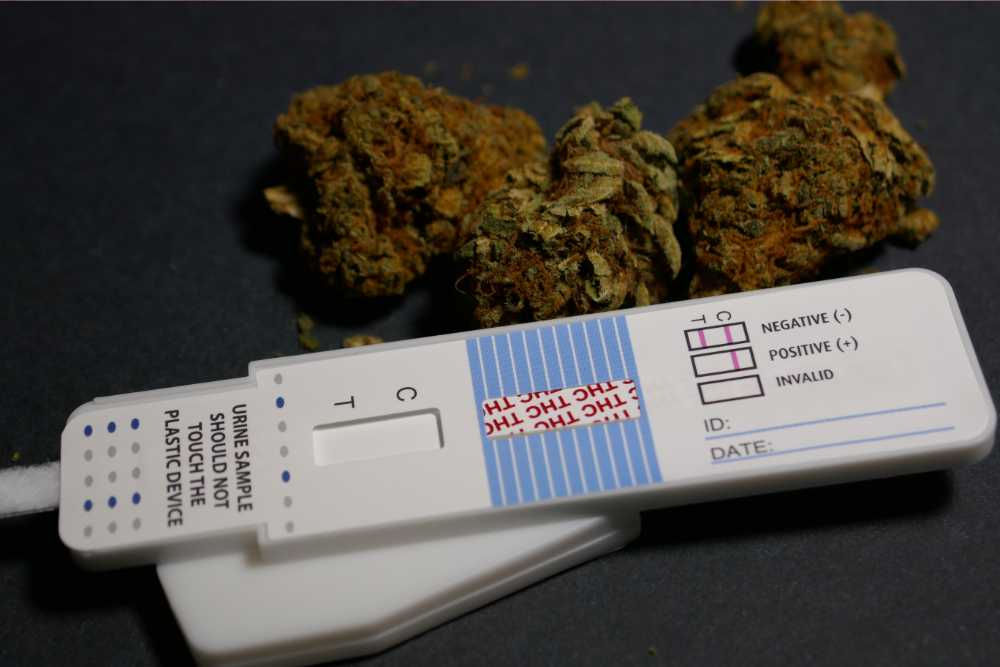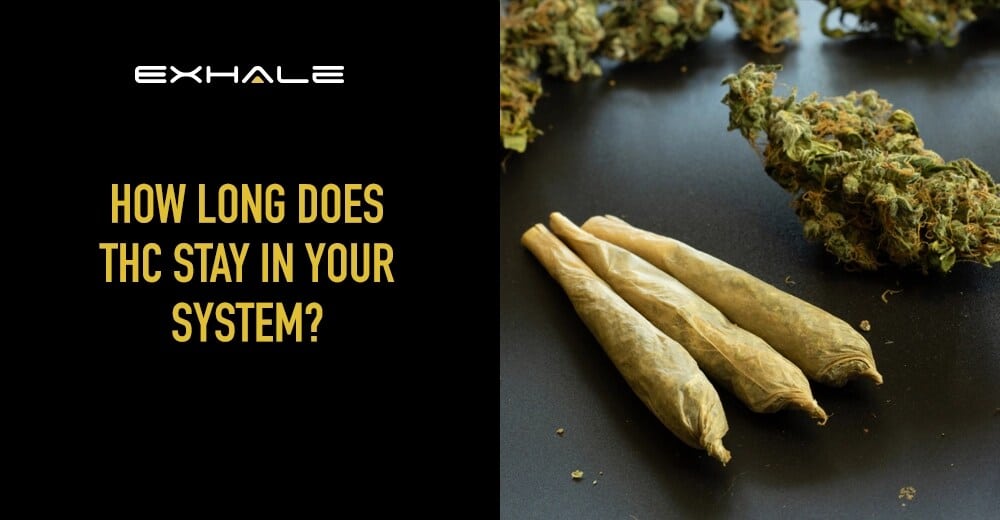People who consume cannabis may pull up their search engine and type “How long does THC stay in system?” They may be curious if they are about to take a drug test for employment or other purposes. Or they may want to know for health reasons. The truth is, there is no clear answer to how long THC will stay in your system. It depends on how much THC you consume, your metabolism, and dosage amounts.
THC metabolites may also be detectable for longer, depending on the drug test you take. Although there is no clear answer to the question of how long does THC stay in your system, there are various factors that will help you prepare for a drug test. We will break it down for you to ensure you maintain employment. Keep reading to find out the different types of drug tests used to detect THC and their detection windows.
How Long Does THC Stay in Your System?
The amount of time THC stays in your system depends on the type of drug test used to detect its presence in your body. Depending on the drug test, THC can stay in your system for as little as 24 hours to as long as a few months. In addition to the type of drug test, other factors such as frequency of use, body fat percentage, body chemistry, and metabolism can impact detection windows in cannabis drug testing.
THC provides a wide range of experiences that vary from person to person. However, regardless of the effects, they will wear off over time. But just because the effects wear off, that doesn’t mean the THC is no longer in your body. Let’s take a look at how THC affects you.
Weed and the Endocannabinoid System
“Weed” is a slang term for marijuana, a cannabis plant with high levels of THC (Delta 9 THC, Delta 9, D9 THC, or D9), a stimulating euphoric cannabinoid. However, THC is also present in extremely low amounts (0.3% or less) in hemp, a cannabis plant with high concentrations of CBD (Cannabidiol), which is non-euphoric. Before we determine how long weed stays in your system, we need to find out how it interacts with your body.
However you choose to consume THC, once it enters the body, it binds to receptors in the endocannabinoid system or ECS. The ECS is a network of cell-signaling receptors that exist throughout our bodies. It plays a role in regulating temperature, mood, sleep, immunity, and other bodily functions.
THC primarily interacts with the CB1 and CB2 cannabinoid receptors of your ECS. CB1 receptors are mainly mood-based and play a part in THC’s euphoric effects. CB2 receptors control immunity and other peripheral nervous system (PNS) functions.
However, each person is unique, and no two ECSs are alike. Therefore, there is no telling how THC will affect us. You may experience a wide range of effects, including physical discomfort relief, sleep support, and boosted relaxation.

How Long Do You Feel the Effects of THC?
The effects of THC can last for several hours depending on how much THC you consume and the method you choose to consume it. If you smoke THC-rich cannabis, it will hit right away. You may feel elevated for anywhere from 3-4 hours, depending on the size of your drag.
If you take an edible, it will go through the digestive system. It could take a half hour to two hours to hit. Some people report feeling elevated off edibles for up to 8 hours.
However, THC will stay in your system a lot longer than that. And that can affect how long THC stays in your system and how long it can be detected in drug tests.
Factors That Affect How Long It Takes to Eliminate THC
After you consume THC, it will eventually break down in the liver. The process will create fat-soluble THC metabolites. Because they are fat-soluble, they will bind with fatty tissues in the body. They will eventually exit the system via sweat, urine, and stools.
However, the length of time THC will stay in your system varies from person to person. It depends on various factors. These include frequency of dose, potency, method of consumption, metabolism, and body mass index. Let’s take a deeper look at each.
Frequency of Dose and the THC Half-Life
The half-life is the amount of time it takes for THC to be reduced by half in the body. THC’s half-life is about 1.3 days for people who use it occasionally. It takes about five half-lives for THC metabolites to fully leave the body.
If you multiply 1.3 days by five, you will arrive at 6.5 days. This is how long THC will stay in the system for occasional consumers.
However, if you consume THC often, it will stay in your system longer. Here is what you can expect from urine tests, the most common type of THC detection test.
- One-Time Use. A urine test will detect THC for up to three days from the last use.
- Moderate Use (Four Times a Week). A urine test will detect THC for five to seven days.
- Regular (Daily Use). A urine test will detect marijuana for 10 to 15 days from the last use.
- Heavy Use (Multiple Times a Day). Urine tests will detect marijuana for 30 days or more.

THC Potency or Strength
The amount of time THC stays in your system will also depend on the potency and strength of the THC you consume.
For example, if you consume a CBD product with a THC content of 0.3% or less, the compound won’t stay in your system long. If you use a high-potency product, it will stay in your system longer. Essentially, the more THC in your system, the harder it will be to eliminate.
How You Consume Cannabis
Enjoying cannabis, in particular marijuana, will always produce THC metabolites. However, the consumption method can affect how much THC ends up in the bloodstream. This is referred to as bioavailability. Here are some metrics to consider.
Smoking cannabis, even inhaling secondhand marijuana smoke, makes THC highly bioavailable. If you vape cannabis or smoke it in a bowl, joint, or bong, it will enter the bloodstream quickly and yield a 10% to 35% absorption rate.
Edible cannabis has a much lower bioavailability rate. It ranges from 4% to 12%. This effect occurs because much of the THC is lost during digestion, metabolism, and elimination.
Metabolism
Metabolism also affects how long THC will stay in your system. If you have a fast metabolism, the THC will take a shorter time to convert into THC metabolites and leave your system. The opposite is true of people with slower metabolisms.
Body Mass Index
Body Mass Index (BMI) also plays a role. If your BMI is high, you have more body fat. The THC metabolites will bind to the fat and stay in your system longer.
The Detection Window
The detection window will also vary depending on your drug test type. Here are the various types of drug tests and their detection windows.
How Long Can THC Be Detected in Urine Tests?
Urine testing is the most common type of drug test. It looks for the presence of THC in your body. So how long does THC stay in your urine?
A urine test can detect THC for as few as three days or as much as six weeks or more after the last use. Urine sample results will vary depending on how often you consume THC, dosage amounts, and your metabolism.
How Long Can THC Be Detected in Oral Swab or Saliva Tests?
Also called an oral fluid test, saliva tests have the shortest detection windows. In most instances, they can detect THC for just 24 hours after use. However, if you are a frequent consumer, a saliva test may find positive results for up to 72 hours.
How Long Can THC Be Detected in Blood Tests?
Blood tests are rarely used for routine drug testing. They are more commonly used to detect blood alcohol levels in case of emergencies.
So how long does THC stay in the body, specifically in blood? Moderate and regular cannabis consumers who get blood tests may encounter a positive result for up to seven days after use. Blood tests may be able to detect THC in the bloodstream of frequent consumers for a month or longer.
How Long Can THC Be Detected in Hair Tests?
You can also detect THC in hair follicles. Hair grows about 0.5 inches a month. Most hair tests will analyze 1.5 inches of hair. Therefore, they are effective at detecting marijuana that has been taken in the last three months.
However, if you haven’t taken THC in a while, and your hair grows quickly, it may grow out before it can yield a positive test. It would have to grow out pretty fast, though!
On the other hand, slow-growing hair will work against you. If your hair grows very slowly, THC may be detectable for up to 12 months. In cases like this, you have to monitor how much cannabis you consume.
Final Thoughts – How Long Does THC Stay in System? [Timeframes Revealed]
If you’re a frequent consumer of THC, you might have Googled, “How long for THC to leave system entirely?” Well, the answer to that depends on several factors unique to you. The frequency of THC consumption, the potency of the product, body fat percentage, metabolism, tolerance, and type of drug test used to detect THC determine this answer.
If you get drug tests often, you will want to know the type of drug test you are going to take, which will determine how long does it take for THC to leave system. We outlined detection windows in various drug tests so you can limit the chances of a positive urine test, blood test, hair test, or saliva test. Expect THC to stay in your system from anywhere from 24 hours to a few months. THC can be present in saliva tests for as little as 24 hours. A hair test, on the other hand, can test positive for THC months after last consumption. Ultimately, it’s up to you to be mindful of the amount of THC you consume and how it can impact your future.




